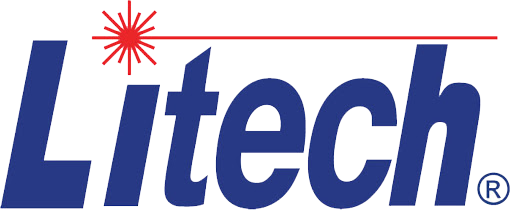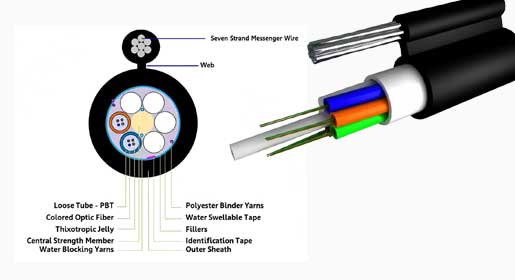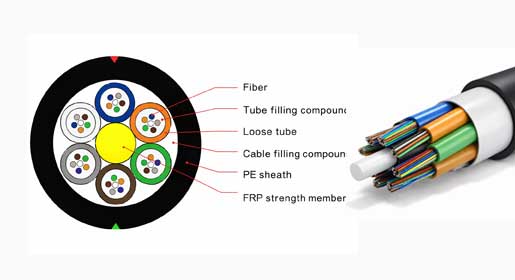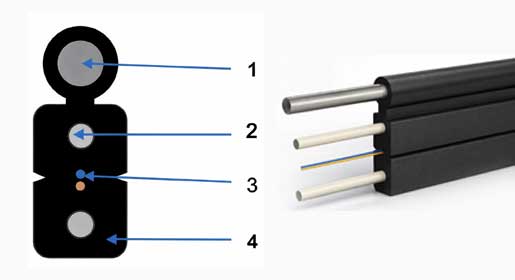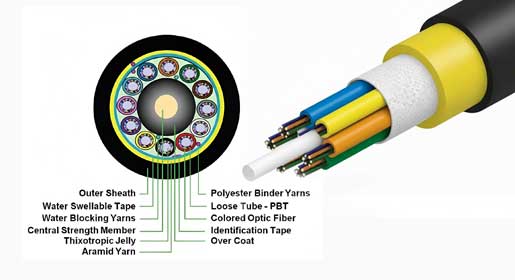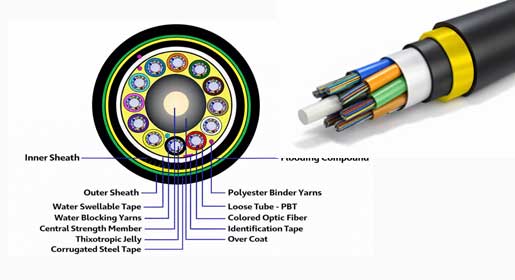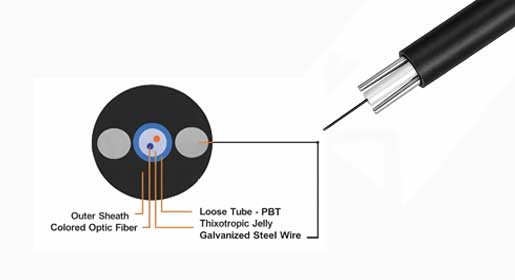
Litech Optical Fiber Cables: Enhance Connectivity and Performance
Litech, more than 10 years after its founding, has gained an excellent reputation as a major manufacturer providing telecommunication and networking solutions.
Our professional skills in manufacturing Fiber, Voice, Structured Cabling Solutions, Coaxial, Racks & Cabinets, RF, and Wireless products are reliable and exceed the expectation
Optical fiber cables are the backbone of modern communication systems, offering speeds and bandwidth not rivaled by any previous iteration- it’s far more reliable. Optimized for high-performance data transmission, the method uses light signals to transfer data over long distances with minimum signal loss. Therefore, they make a preferred choice for applications in telecom, networking, and industry.
We cater to diverse industry requirements by offering a wide array of optical fiber cables, including both single-mode and multi-mode fibers. With Litech Paistan’s optical fiber solutions, achieve faster speeds, better connectivity, and more long-lasting performance in any cable designed for high-speed internet, data centers, or networks that require secure communications.
Browse our selection to get the right cables for your project.
Below are key features of our Optical Fiber Cables:.
- High Bandwidth Capacity: To support huge data volumes at high speed.
- Low Signal Loss: It supports long-distance communication with minimal attenuation.
- Durability & Flexibility: It is designed to work successfully in any environment.
- Versatile Applications: Telecommunication, data centre, industrial networks, etc.
Connect and share maximum potentiality with the state-of-the-art optical fiber technology offered at Litech Pakistan.
Fiber Optic Cable by Litech Pakistan
Fiber optic cables, offered by Litech Pakistan (www.litech.com.pk), are designed to deliver ultra-fast data transfer and high bandwidth capabilities. These cables use strands of glass fibers to transmit data as light, making them far superior in terms of speed and reliability compared to traditional copper cables. They are essential for high-speed internet connections, telecommunications, and data transmission over long distances.
Introduction to Fiber Optic Cable
Fiber optic cables are a modern solution for high-speed data transmission, made from thin strands of glass or plastic fibers that carry light signals. Unlike traditional copper cables that transmit electrical signals, fiber optic cables use light, allowing for faster speeds and longer transmission distances with minimal data loss. They are widely used in telecommunications, internet services, and broadcasting.
Pros and Cons of Fiber Optic Cable
Pros:
- High Speed: Fiber optic cables offer extremely high data transmission speeds, capable of handling gigabit speeds and beyond.
- Longer Distance: They can transmit data over much longer distances without signal degradation compared to copper cables.
- Greater Bandwidth: Fiber optic cables can carry more data simultaneously, making them ideal for applications that require high bandwidth.
- Immunity to Electromagnetic Interference (EMI): Since fiber optic cables transmit light rather than electrical signals, they are immune to electromagnetic interference.
- Durability: Fiber optic cables are resistant to corrosion and wear, making them suitable for harsh environments and long-term installations.
Cons:
- Cost: Fiber optic cables are slightly more expensive to purchase and install than traditional copper cables.
- Fragility: The glass fibers inside the cables are more fragile than copper, requiring careful handling during installation.
- Specialized Equipment: Installing and maintaining fiber optic systems requires specialized equipment and expertise, which can increase costs.
Uses of Fiber Optic Cable
Fiber optic cables are widely used in various sectors due to their speed, reliability, and long-distance transmission capabilities:
- Telecommunications: Backbone for high-speed internet, telephone networks, and television broadcasting.
- Data Centers: Used for high-speed data transmission between servers and storage systems.
- Medical Applications: Employed in medical imaging and laser surgeries.
- Military and Aerospace: Used in communication systems where high security and minimal signal loss are critical.
- Industrial Networking: Ideal for connecting equipment in large factories or manufacturing plants due to its EMI immunity.
What is Fiber Optic Cable Used For?
Fiber optic cables are primarily used for:
- Internet Access: Providing high-speed internet connections to homes, businesses, and data centers.
- Television Broadcasting: Delivering high-definition video streams with minimal lag or data loss.
- Telecommunications: Supporting long-distance communication without signal degradation, ideal for phone lines and cellular networks.
What is the Speed of Fiber Optic Cable?
Fiber optic cables are capable of supporting incredibly high speeds:
- Up to 100 Gbps or more for long-distance data transmission.
- Common household fiber optic internet services typically range from 1 Gbps to 30 Gbps, depending on the service provider.
What is the Price of Fiber Optic Cable in Pakistan?
The fiber optic cable price in Pakistan varies based on the brand, quality, and type.
Litech Pakistan provides competitive pricing on high-quality fiber optic cables, ensuring you get the best performance for your investment.
What are the Two Types of Fiber Optic Cable?
- Single-Mode Fiber (SMF):
Designed for long-distance communication, single-mode fiber optic cables use a single strand of glass and a laser light source to transmit data over vast distances with minimal signal loss. - Multi-Mode Fiber (MMF):
Multi-mode fiber cables are designed for shorter distances and typically use an LED light source to transmit data. They are often used in local area networks (LANs) and data centers.
Is Fiber Optic for TV or Internet?
Fiber optic cables are used for both television and internet. They provide high-definition television signals with minimal lag and buffering, while also delivering ultra-fast, high-bandwidth internet connections for homes and businesses.
How Much Does Fiber Optic Cable Cost Per Foot?
The cost of fiber optic cable per foot depends on the type, quality and durability.
Litech Pakistan provides competitive pricing on high-quality fiber optic cables, ensuring you get the best performance for your investment.
FAQs about Fiber Optic Cable
1. What is the difference between single-mode and multi-mode fiber optic cables?
Single-mode is used for long-distance communication, while multi-mode is better for shorter distances, such as in LANs.
2. What is the maximum distance for fiber optic cable?
Single-mode fiber can transmit up to 100 kilometers, while multi-mode is limited to shorter distances, typically around 500 meters.
3. Can I use fiber optic cable for home internet?
Yes, fiber optic cables are increasingly being used to deliver high-speed internet to homes and businesses.
4. Is fiber optic faster than copper?
Yes, fiber optic cables offer much higher speeds and bandwidth than traditional copper cables.
5. How much bandwidth can fiber optic cables carry?
Fiber optic cables can carry bandwidths of up to 100 Gbps, depending on the technology used.
6. Can fiber optic cables be used outdoors?
Yes, outdoor-rated fiber optic cables are designed to withstand weather and environmental conditions.
7. How do I know if I need single-mode or multi-mode fiber?
Use single-mode fiber for long-distance communication and multi-mode fiber for short-distance, high-speed data transmission within buildings or campuses.
8. Is fiber optic cable more expensive than copper?
Yes, fiber optic cables are generally more expensive, but they provide superior performance and durability.
9. What equipment is required for fiber optic installation?
Fiber optic installation requires specialized equipment such as fiber optic splicers, connectors, etc.
10. Can I upgrade my existing copper network to fiber optic?
Yes, but it may require new infrastructure, equipment, and connectors, which can add to the installation cost.
11. How long do fiber optic cables last?
Fiber optic cables are very durable and can last 25 years or more if installed correctly and maintained properly.
For high-quality, durable fiber optic cables in Pakistan, Litech Pakistan is your trusted source. Whether for home, office, or industrial use, Litech offers reliable solutions at competitive prices.
